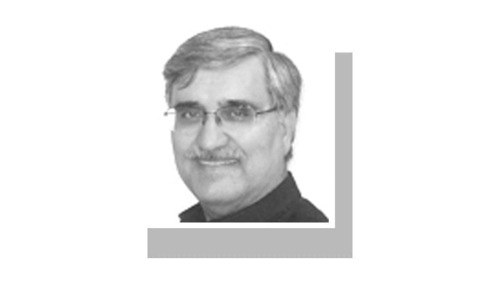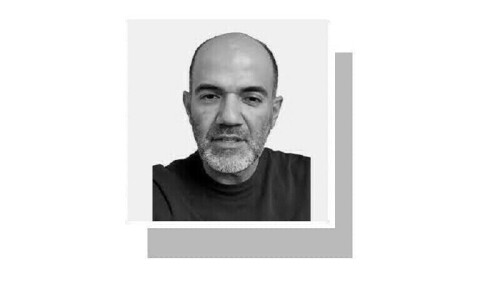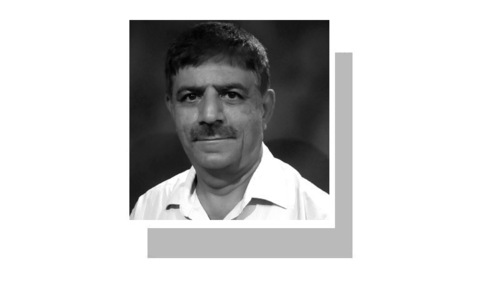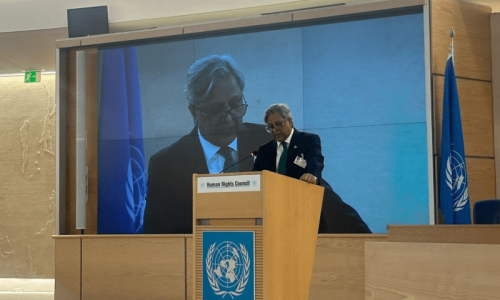LAHORE: Political analysts do not see the opposition parties’ first show of power in Gujranwala causing any immediate threat to the Pakistan Tehreek-i-Insaf (PTI) government, but any continued momentum of the protests may create a crisis-like situation later.
The PTI, in the meantime, seems concerned, as its ministers as well as the prime minister have come up with statements that all opposition parties had joined hands to “protect their corruption”.
Ahead of the Pakistan Democratic Movement (PDM) rally and public meeting, Prime Minister Imran Khan had claimed that all the “dacoits” had gathered against him to seek a National Reconciliation Ordinance (NRO), adding that he had decided to take a tough decision and not submit to the pressure of the opposition alliance. “Giving an NRO to the opposition leaders is an easy path to take but it will lead to destruction,” he stated.
Analysts agree that the opposition parties had joined hands primarily to get rid of corruption cases and destabilise the government, which has just completed its two years in power.
Mr Rasul Bakhsh Rais said the PDM public meeting in Gujranwala would not create any immediate impact. Seeing the alliance’s rally turning out well, he said the question remained whether the opposition would keep up its momentum of protests to achieve its ultimate goal of compelling the government to resign.
Stressing that it was not a good omen for the maturity of democracy, Mr Rais said he could foresee confrontation and crisis if the opposition parties’ protest toughened in the days to come. He also said premier Imran Khan’s response to the protests in terms of mobilising the state machinery would explain the future course of action of the country. It would also be seen whether the PTI government was able to get a majority in the Senate elections scheduled for March.
He added that the opposition leaders had joined hands for their respective reasons. The PML-N and PPP leaders wanted to get rid of corruption cases, while PDM chief Maulana Fazlur Rehman felt insulted and isolated by the present government.
Punjab University social sciences faculty Dean Dr Umbreen Javed did not see a far-reaching impact of these protest rallies and movement. “There is no chance that this government will be destabilised or fall,” she remarked. “The opposition parties have joined hands to pressurise the government and seek concessions in their corruption cases.”
Dr Javed said the rising prices of daily-use items was affecting every segment of society and the opposition was out to exploit this situation. “The opposition parties are trying to stir anti-government sentiments while enumerating the increase in prices of daily-use items because the common people are not bothered about corruption cases but their utility and grocery bills,” she added.
Responding to the good response to the opposition parties’ first joint public meeting, Dr Javed said the PML-N had strong roots in Punjab, and Gujranwala was their stronghold, as most national and provincial assembly seats from there in the 2018 general elections were won by the PML-N.
Published in Dawn, October 17th, 2020













































